The extent of power that HOAs can exercise leads to confusion over what they can and can’t do. This is not just on your side. Because they can control many aspects of your home life, HOA board members can end up crossing lines because they focus on the control as opposed to the rules. But there are lines.

HOAs can’t prevent religious/political displays, legal firearms, satellite dishes, solar panels, native plants, and hanging washing outside. They can’t discriminate. Fines can be contested. Rules passed incorrectly aren’t enforceable. Rules can’t be selectively enforced. HOAs can’t foreclose on servicemembers.
1. Stop Displaying Religious Symbols
HOAs are not legally allowed to stop you from displaying religious symbols on your property as this is unlawful.
Any of the HOA rules that prevent such a display contravene the Fair Housing Act and the constitutional first amendment of religious freedom.
If the HOA permits one homeowner to display religious symbols but deny a homeowner belonging to a different religion the right to display religious symbols, then they are discriminating against the second homeowner, which is again a violation of constitutional law.

If the HOA tries to fine you for displaying religious symbols and you take them to court, you are likely to win.
2. No Foreign Nationals
The Fair Housing Act prohibits any discrimination based on nationality or country of origin.
Municipal governments that have participated in discrimination by attempting to reduce the number of individuals living in a specific area because of their nationality have had legal action taken against them by The Justice Department.
For instance, the Hispanic population has been growing rapidly within the United States, and some HOAs have tried to reduce or limit the number of Hispanic families living within a certain community.
They have been reprimanded by the Department of Justice for doing so because such acts are in direct violation of the Fair Housing Act, and no HOA by-law overrides federal law.
3. Only Married Couples/Traditional Families
The HOA cannot deny housing to individuals based on their marital status or sexual orientation.
The US Department of Housing and Urban Development and Fair Housing Act enforces an equal access rule that prohibits HOAs from discriminating against homeowners based on their sexual orientation, gender identity, or marital status.

Members of the LGBTQ+ community, single mothers or fathers, and unmarried couples are all granted equal access to housing under this law.
If you feel you have been discriminated against by your HOA based on your marital status or sexual orientation, you can take action by filing a complaint with the HUD (Housing and Urban Development).
4. Ramps Cannot Be Installed
By law, the HOA must allow homeowners living with a disability to make modifications to their homes if necessary.
If you use a wheelchair as a result of your disability, you may need to make modifications to your house.
The HOA has no control over whether you put railings up in your bathroom, build a shower without a step-up, or replace your kitchen counters with lower ones because this is inside your home and has no bearing on the structural stability of the house.
However, they may try to stop you from installing ramps into your house because this affects the outward appearance of the home, which they do have jurisdiction over.
Yet, even though they have this jurisdiction, if they were to stop you from building ramps into the house, essentially making the house impossible to live in, they are discriminating against you because you use a wheelchair.
As long as the ramp meets building code requirements, abides by safety guidelines, and does not inhibit the movement of other residents in the area, then the HOA cannot stop you from adding a ramp to your property if you need it to get in or out of your home.
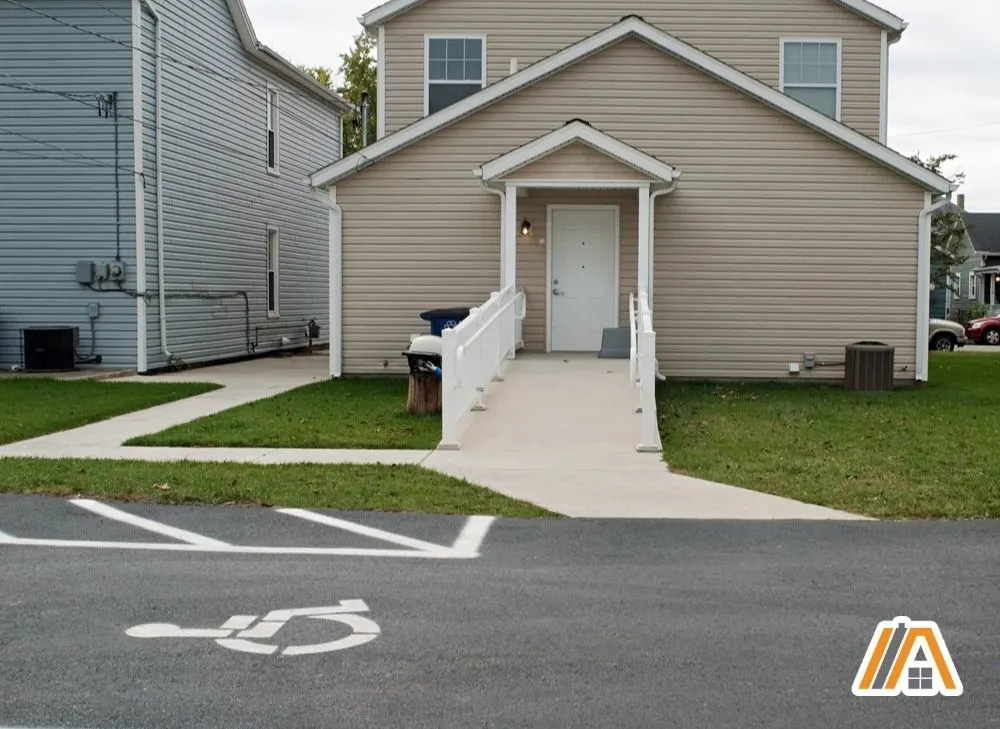
The HOA may require the homeowner to provide documentation of their building plans and may make them agree to return the property to its original state by removing the modifications if they decide to move.
5. Take Down Your Satellite Dish
The HOA cannot prohibit you from installing a satellite dish on your roof because these devices are protected by the Federal Communications Commission (FCC).
With a few exceptions (check your state laws), the FCC protects homeowners’ rights to utilize an antenna to receive video or wireless signals from a satellite dish, radio signals, and television broadcasts.
Dish antennas are protected by these rules as long as they are one meter or less in diameter. Although, in Alaska, any size dish antenna is permitted by law.
The HOA can insist on confirmation that the house can support the weight of the dish, professional installation, an electrical inspection, and upkeep.
Antennas used to transmit signals among multiple locations, for AM/FM radio, amateur radio, or digital audio radio services are not protected by these rules.
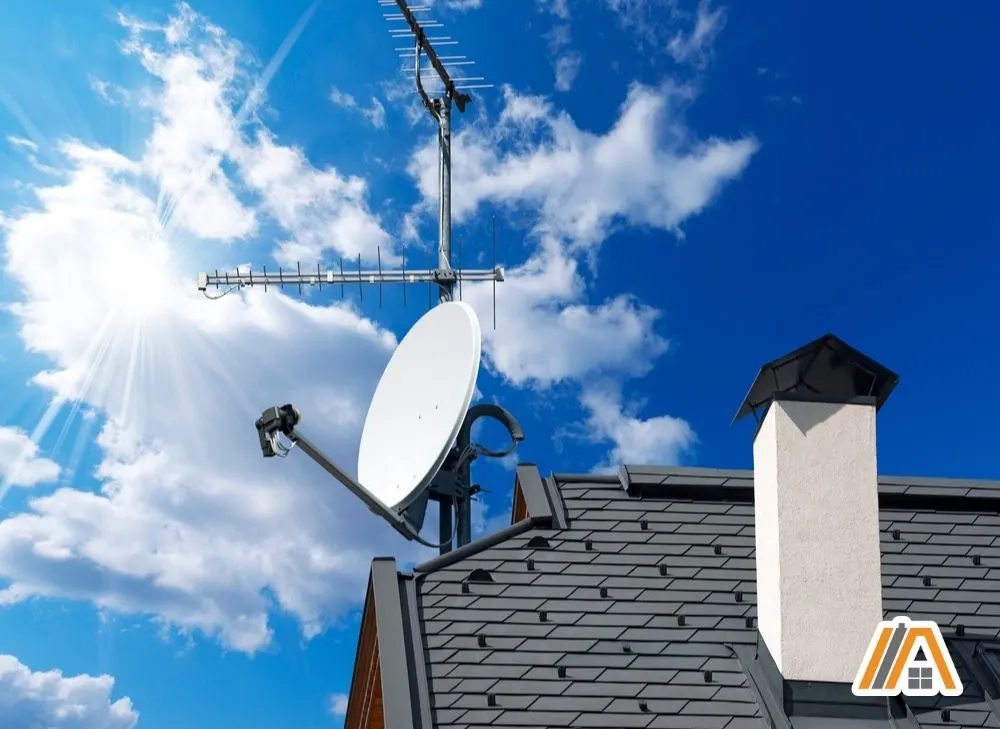
6. Stop Hanging Your Washing Outside
Many HOAs try to ban homeowners from hanging their clothes to dry outside after they have been washed because they dislike the way it looks in the yard or on balconies.
However, hanging clothes outside to dry is beneficial to the environment and can save you a lot of extra money. Additionally, drying your clothes outside rather than in a dryer reduces damage to the materials and helps them last longer.
Because of this, many states protect homeowners’ rights to hang their clothing outside to dry. Unfortunately, not all states do, so be sure to check your state’s laws regarding whether or not air-drying your clothes outside is protected by law.
If your right to hang washing outside is protected by law, it may be that the HOA can’t stop you from hanging it outside but they can prescribe where outside is acceptable.
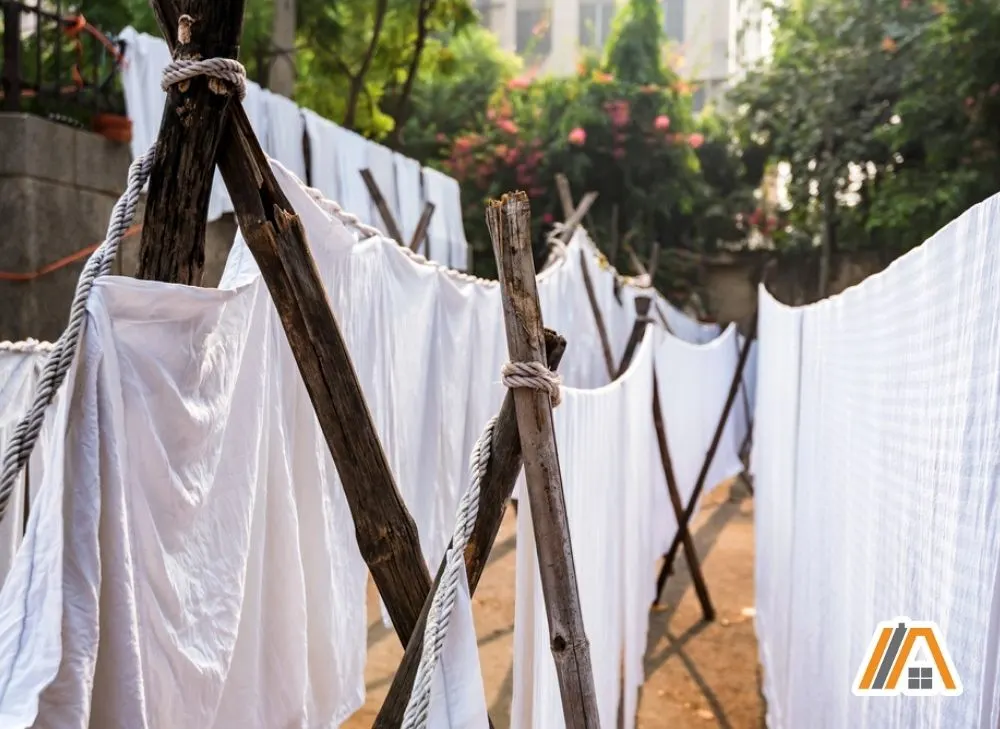
For example, you can hang it on a line or drying rack but not over the wall or balcony railing.
7. Do Not Install a Solar Energy System
The HOA may try to ban homeowners from installing a solar energy system due to the way they make the property look.
There are concerns that the installation of a solar energy system negatively alters the character of a community or that it will decrease the value of the property.
There are many states that protect your right as a homeowner to install a solar energy system because solar energy systems are an effective way to save money and reduce your carbon footprint by utilizing the sun’s energy.
Thus, solar energy systems cannot be denied by the HOA in many states due to Solar Access Rights that have been put in place.
There are still states in which HOAs can ban solar panels, but there may soon come a time when regulations prohibiting solar system installation will have to be removed from the by-laws completely.
We are currently in a global energy crisis and renewable energy sources are becoming a necessity that cannot be prohibited in favor of marginally better aesthetics.
In South Africa for example, they implement nationwide power cuts called loadshedding.
As of 2023, they are predominantly in Stage 6 loadshedding, which means that people are without power for approximately 11.5 hours every single day (split into 2.5- and 4.5-hour slots).
Many other countries are going this way as well and one of the most pressing consequences in many parts of the world, including South Africa, is that the infrastructure cannot handle being turned on and off all the time, so it breaks down, and there are unplanned outages on top of the planned ones.
If you live in an area that suffers from frequent power outages but there are by-laws preventing solar installation, you would have a strong case if you were to contest this regulation, particularly if you work from home or have special needs or a family member with special needs.
8. Uproot Native Plants
There are a few states that have laws protecting native plants because many of these plants are facing species endangerment or extinction.
Such native plants are vital to our ecosystems, and their disappearance could be detrimental to the environment, which affects human survival.
Under these conservation laws, the HOA cannot force any homeowner to uproot a native plant for any reason.
Because laws vary depending on which state you live in, you will need to do some research and familiarize yourself with native plants that are protected by law in your state.
9. No Displays of Political Affiliations At All
Citizens of the USA have a right to display their political beliefs and affiliations on their property.
This is a right governed by state laws, which HOA regulations cannot override. However, depending on what state you live in, displays may be limited to specific times, like in the lead up to elections.
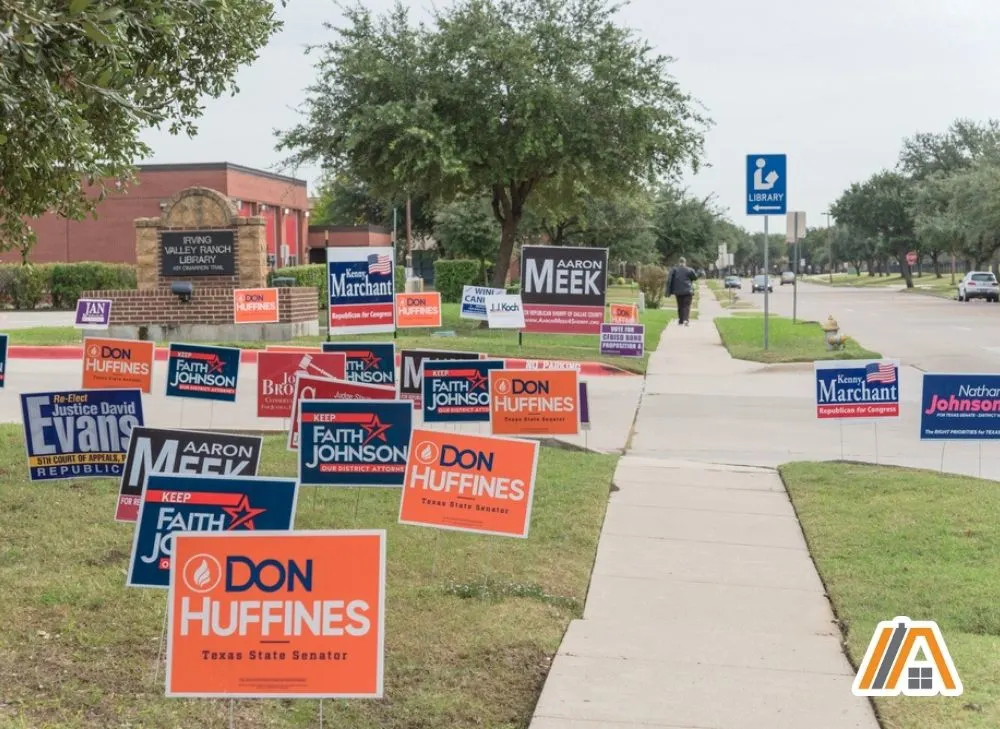
HOAs can follow and enforce the limits of the law in their by-laws, but typically, total prohibition of political affiliation displays is unlawful.
10. You Cannot Own a Firearm
The HOA is not permitted to create rules that infringe upon homeowner’s constitutional rights unless there is rational justification and the infringement is supported legally (i.e., by authorities outside of the HOA).
As your right to bear arms is protected by the constitution, it cannot be taken away by the HOA.
While the HOA cannot ban residents from owning a gun or keeping it within their own homes, they can enforce rules regarding the use of the gun itself if issues arise within the community, particularly if these issues infringe on someone else’s constitutional rights.
American citizens have the “right to life, liberty, and personal security,” according to the American Declaration of the Rights and Duties of Man.
Let’s say that someone in the HOA community owns a gun, (a protected right). But one day, this person drinks a little too much alcohol and, wearing the gun in its holster, goes around the neighborhood verbally attacking people.
Even if the firearm remains holstered, the person’s behavior and inebriated state is putting other people the neighborhood in danger, compromising their right to life and personal security, should the owner of the gun decide to take it out and use it.
In such cases, steps can be taken by the HOA, and law enforcement may have to get involved as well.
11. HOA Fines Are Incontestable
HOA fines are not incontestable, and you can take the HOA to civil court if they deny your right to dispute the fine.
You are allowed to contest the fine whether it is valid or not. The HOA has to be able to prove that you have violated an existing and enforceable regulation.
However, taking the HOA to court for a fine you know to be valid just because they refused to provide you with written proof is going to be a hollow victory for most people. Presenting your case against the HOA at court can be pricey even if you win.
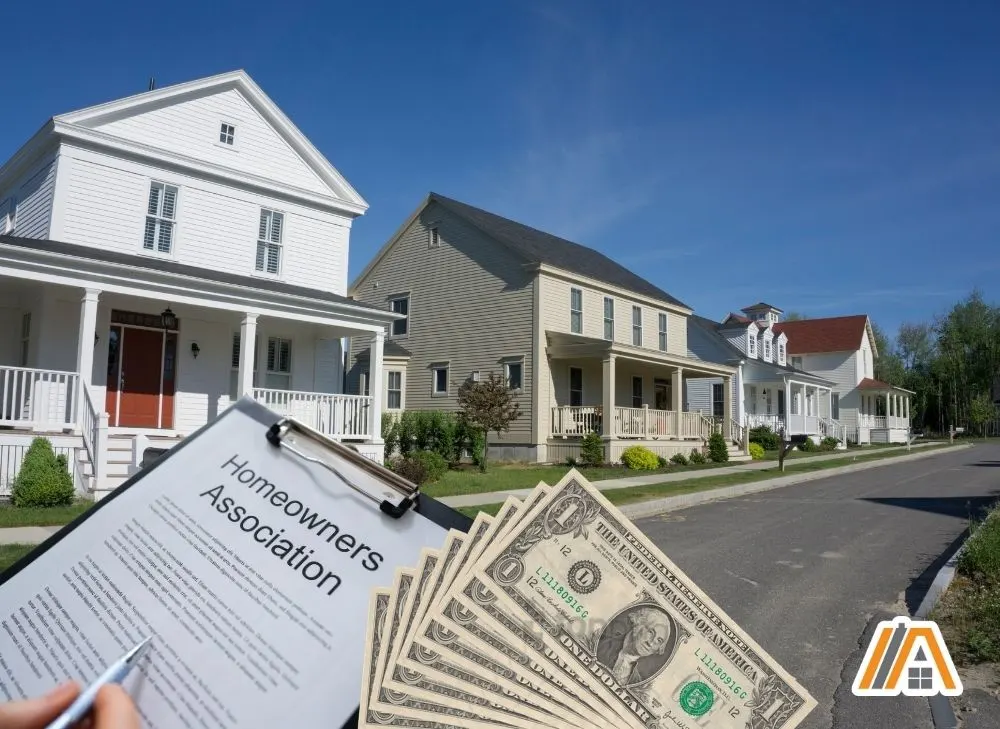
Of course, if you have the facilities to do so, then by all means, go ahead. The HOA does need to know that they have to follow the rules as well, and maybe you can fight the fight on behalf of all the residents.
In most cases, you should carefully read and research the regulations enforced by your HOA before appealing a fine from them.
It is also necessary to research your HOA’s guidelines to develop an understanding of the rights you are entitled to as a homeowner.
You can also hire a lawyer who will help you decipher your state’s laws to determine if you would have a strong case against the HOA should you choose to move forward.
If you have reason to appeal your fine, the next step is to contact your HOA and hire a lawyer to help you prepare your appeal case.
12. Rules That Were Not Passed Correctly
The HOA cannot enforce rules that were not passed following the correct procedure.
The Covenants, Conditions, and Restrictions (CC&Rs) of the HOA outline the appropriate procedure required to be followed when a new rule is passed.
It is not uncommon or unfair for the HOA to add or change a rule.
However, the HOA needs to follow the procedure outlined in the CC&Rs in order to do so lawfully. If the HOA does not follow this procedure, the rule cannot be enforced.
For example, a common part of the procedure is that the HOA has to inform the homeowners of a potential new rule before it takes effect, giving people enough time to ask questions, contest the new rule, or make adjustments that will ensure that they are compliant when the rule comes into effect.
If they neglect to tell you and then you violate the rule, they cannot enforce it as you never knew that it existed.
13. Selectively Enforced Rules
The HOA cannot selectively enforce rules. The HOA is required to enforce its rules in a manner that is fair and consistent.
If the HOA has a rule in place, it needs to apply to everyone residing in the community, including resident members of the HOA board.
The HOA is not allowed to enforce a rule upon one homeowner if they do not apply the same rule to other homeowners in the community.
This type of situation can prove that the HOA is incompetent, but it is often indicative of a more serious issue, like discrimination or bias.
For example, the HOA cannot ban you from displaying Christmas lights on your property if they permit other homeowners in the community to display similar lights on their property.
Or, to incorporate a previously mentioned unenforceable rule, the HOA cannot allow one political group to display their signs, but not another political group.
If the HOA is trying to enforce a legitimate rule, but they have, in the past, opted against enforcing it, then you have what is called case law in your arsenal of defence.
Example
Let’s say that your dog escaped one day and dug up one of the community flower beds.

It’s the first time this has happened, and you are happy to pay for the damages and promise to keep your dog contained in the future.
However, the HOA is enforcing the “dogs must be on leashes when outside of the individual’s property walls” rule to the strictest degree and are trying to revoke your permission to have a dog.
Now, let’s imagine that the same thing happened with a neighbor’s dog a few months ago. Yes, their dog is smaller, so the damages were less, but all that neighbor was required to do was to replace the plants that were dug up by their dog.
You can go to the HOA and ask why you are being treated differently to your neighbor. If you were to replace the plants, the flower bed will be restored to the same condition as before, which is the same outcome as the one with your neighbor.
If they say the damages are greater, so the punishment is more severe, ask them to provide evidence of that regulation.
There is no reason why you should have to get rid of your dog in this situation, and the HOA is demonstrating discrimination, which is not just a violation of by-laws, and they can get into quite serious trouble for this.
Variation of Selective Enforcement
A variation of selective enforcement is when a rule definitely exists but has never been enforced before and all of a sudden, the HOA starts enforcing it across the board.
In cases like this, the HOA can provide evidence of why they are enforcing it, but you could also argue that they need to give you a reason why it’s all of a sudden being enforced and that they need to give you and your neighbors an opportunity to comply before issuing any fines or warnings.
14. Foreclosure on Servicemember Property
HOAs themselves cannot foreclose on a property. However, they can place a lien against it, which means that they can make a financial claim on it for HOA fees that are unpaid. Basically, they can use your house for collateral.
If they “cash in” the collateral, it can mean foreclosure on your loan by the lender. This means that the HOA has to be very careful about placing a lien against the property of an active servicemember.
Foreclosure on active service members is allowed, but the Servicemembers Civil Relief Act (SCRA) protects these individuals from unfair proceedings based on the fact that they might be absent when the foreclosure is processed.
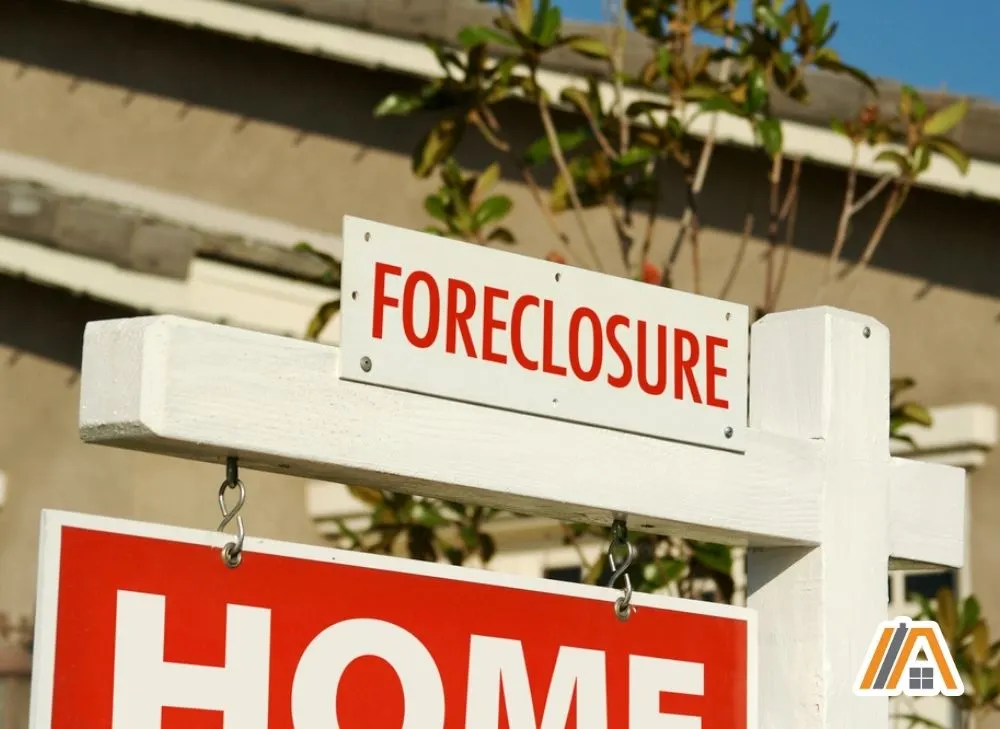
If active military members take out a mortgage before they go on active duty, then foreclosure is only possible under court order or if the servicemember signs a waiver.
Even in the case of a court-ordered foreclosure, a default ruling against the defendant (the servicemember) due to absence is not allowed. This is because the reason they are not be in court to defend themselves is because they are on active duty, serving their country.
When this matter goes to court, it is known as a judicial foreclosure. You also get non-judicial foreclosures, which can be successfully used to foreclose on the property if the servicemember took out the mortgage after active service.
15. You Are Too Young
Just as the HOA cannot discriminate against homeowners based on their familial status, they are also prohibited from discriminating based on age.
Enforcing the rule that homes within a community are restricted to those above a certain age is considered an act of discrimination, violating your rights as a US citizen, and contravening the laws set out in the Fair Housing Act.
The only exceptions to this rule are designated retirement communities because they operate as “senior” living spaces and house residents who are aged 55 and older.
16. No Service Animals Are Permitted
Although the HOA has the right to ban pets, they are not allowed to ban service animals because these are protected by the Fair Housing Act.
Service animals are protected by law because they provide assistance to those living with disabilities, and discrimination against those who are disabled is strictly prohibited by the Fair Housing Act.

The HOA may ask to see documentation to verify that your pet is a registered service animal when you are applying, but they are not allowed to ask you to present the documents at any other time and they are not allowed to ask any questions regarding your disability.
It is also important to note that an emotional support animal and a service animal are considered to be different, and emotional support animals are not protected by the same rights as service animals.
17. Adults Only
The Fair Housing Act protects the rights of families with children under the age of 18.
The HOA cannot refuse to rent or sell a property to a family that has children. Denying them a home on these grounds is against the law.
For example, “adult only” apartment buildings were once common, but would now be considered a violation of the Fair Housing Act because they are discriminatory towards adults who have children.
Once again, the only exception to this rule is for retirement communities because these areas are specifically designated to senior citizens who are 55 and older.
Sources
https://www.fcc.gov/consumers/guides/installing-consumer-owned-antennas-and-satellite-dishes
https://takeayard.com/are-clothes-lines-illegal/
https://www.hopb.co/blog/the-ins-and-outs-of-solar-panels-in-hoa-communities
https://www.biologicaldiversity.org/campaigns/protecting_native_plants/
https://www.hg.org/legal-articles/can-an-hoa-prevent-the-lawful-exercise-of-gun-rights-45411
https://dessaules.com/blog/how-to-fight-hoa-fines
https://www.hoamanagement.com/unenforceable-hoa-rules/
https://www.justice.gov/servicemembers/servicemembers-civil-relief-act-scra
https://www.hopb.co/blog/what-about-the-children-hoa-age-restrictions-and-fha-proscriptions
https://cedarmanagementgroup.com/service-animals-in-hoas/
